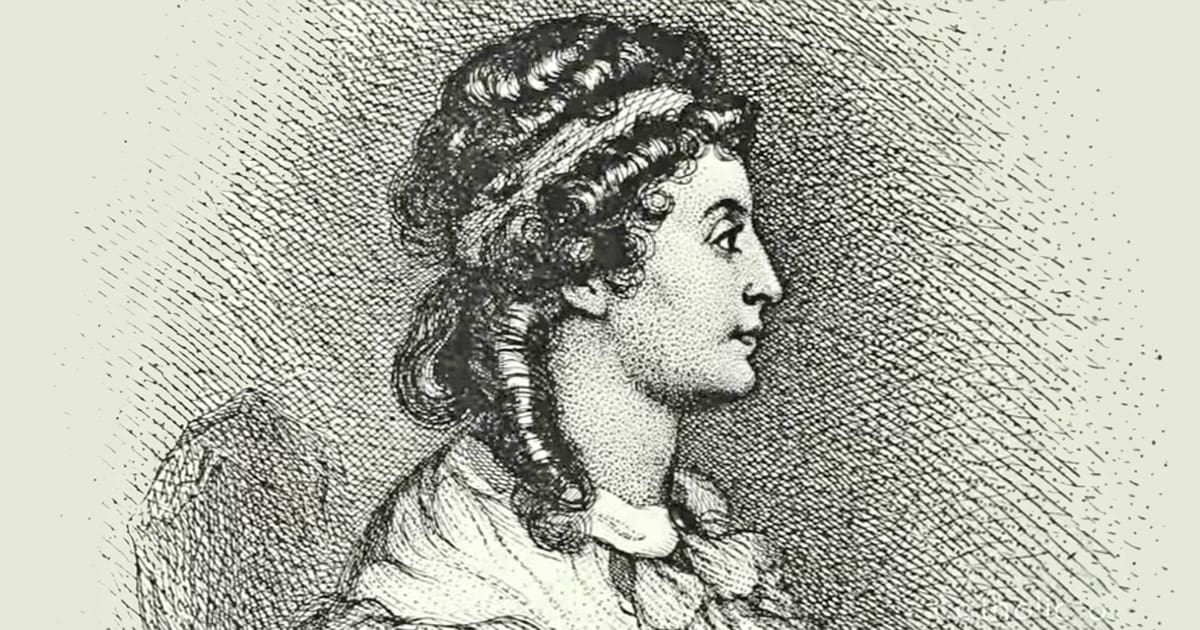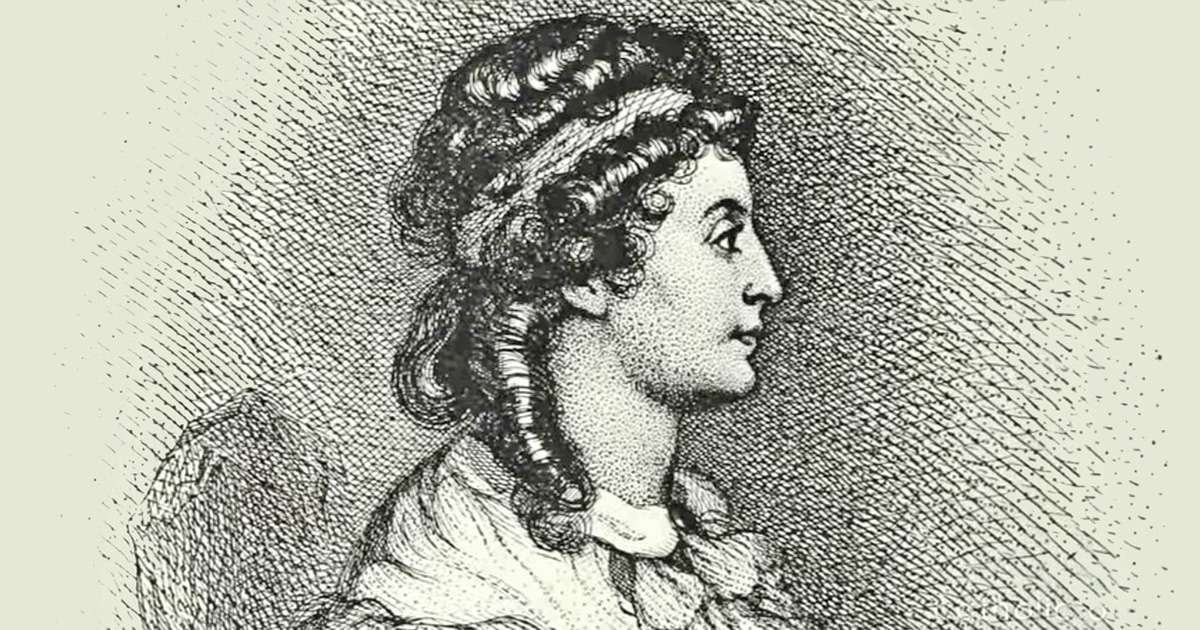Let Saint Elizabeth Ann Seton Be Your Companion This Year
Looking for a role model to inspire your New Year’s resolutions? Who better than St. Elizabeth Ann Seton, America’s first native-born Saint, whose feast day falls on January 4. She overcame the same obstacles we struggle with in our own lives. A friend we can identify with is one we are more likely to emulate.
When a new year begins, we know it’s a good practice to take stock of the successes and failures of the previous twelve months and resolve to do better, but it’s also a good time to examine what sort of thinking we have engaged in – whether it’s been unproductive and negative “stinking thinking,” or reality-grounded yet determinedly positive. Our thinking, after all, deeply impacts the way we move about in life, for better or worse, “in all we have done, in all we have failed to do.”
It’s also a good time to consider who we have been keeping company with, both physically, mentally, and spiritually – and whether those associations have been beneficial or harmful to us, and which ones we should try to pursue more fully or engage with less frequently, if at all.
We might notice that some of our acquaintances have drawn us into easy negative habits (like gossip, or cynicism), while others have encouraged us toward the more difficult habits of charity. Perhaps some people we follow on social media platforms have been a reliable source of inspiration, while others seem to bring out the worst in us. If self-improvement is our goal, we would do well to give less of our time and attention to the former, and more to the latter.
This doesn’t necessarily mean “giving up” on those who may sometimes lead us astray; it means giving more time and attention to the positive influencers, and using what they can bring us to expand our own spiritual and personal growth, to the point where we may become good, inspiring influences on others – even to those we’ve had to pull back from in order to work on ourselves.
In light of all this, it seems especially fortuitous that the feast day of St. Elizabeth Ann Seton occurs on January 4, when we are still pondering these things, and seeking out modes of self-improvement, because so many aspects of her life are so readily identifiable with our own, and a friend we can identify with is one we will more willingly learn from and emulate.
How relatable is St. Elizabeth Ann to our lives and our times? Well, she’s a woman whose life pitched her from wealth to poverty, from a deliriously happy marriage to young widowhood. From a world full of social connections — she would have been a huge draw on Facebook and Twitter — to a social reject. As a child she lived uneasily in a troubled “blended family” before such things were common and she suffered there enough to contemplate overdosing on an opiate (laudanum) to escape.
Before Elizabeth became the spiritual mother of many, she was a single parent raising five children and scrambling to find respectable work to support them. She raised her children with great joy but grieved for the two young ones she had to bury.
Baptized into the Anglican tradition, Elizabeth’s relationship with God was forged in her youth, her prayers informed by Scripture and her instinct for lectio divina. Her encounters with the Word created a hunger for the Word Made Flesh, and fervor for the Real Presence brought her into full communion with the Catholic Church.
Her habit of seeing the hand of Providence in all things made the subsequent rejection by her family seem a bearable turn within the trustworthy plans of God. “If [something] succeeds, I bless God, if it does not succeed …I bless God, because then it will be right that things should not succeed.”
On top of all of that, St. Elizabeth Ann was an educational innovator who, through the founding of the Sisters of Charity of St. Joseph in 1808, deeply influenced Catholic elementary education in America at a time when Catholics were not always looked upon with kindness. Her religious community, founded upon the spiritual teachings of Sts. Vincent de Paul and Louis de Marillac, created schools, colleges, hospitals, and orphanages, always giving preference to the poor and disadvantaged. Her life and her work brought endless obstacles but Mother Seton’s intimacy with Providence gave her the spiritual strength to overcome them. “But my God knows best,” she would say.
This January, most of us are going to resolve to do something along these lines:
- Rely upon God with greater faith and find God in all things.
- Deepen our prayer habits
- Actively discern God’s promptings and respond without fear
It’s a spiritually ambitious agenda, but one that we can make real headway with, if we have the right companion providing us good example and praying for our intentions. St. Elizabeth Ann has something to teach us on all of these fronts, beginning with this almost perfect prayer:
O my God! Forgive what I have been, correct what I am, and direct what I shall be.
As to how she can help with the rest of our agenda:
- “All is solitary where you are not, and where you are is fullness of joy.”
- “God is everywhere — on the throne of his glory and among the blessed, but also throughout the whole Universe which he fills, governs and preserves, ruling it with his wisdom and power… so infinitely present to us that he is in every part of our life and being.”
- “God has given me a great deal to do, and I have always, and hope always, to prefer his Will to every wish of my own.”
- “As birds in changing their places find the air wherever they fly, and fish who live in the water are surrounded by their element wherever they swim, so wherever we go, we must find God everywhere.”
- “We must pray without ceasing, in every occurrence and employment of our lives – that prayer which is rather a habit of lifting up the heart to God as in a constant communication with Him.”
Most Catholics know little about Mother Seton beyond her role as foundress of a religious order and educator, but the circumstances of her own life make her a spiritual companion whose example we can identify with on many different levels; she can understand our cries for intercessory prayer in ways unique within the Communion of Saints.
Whoever you are and whatever you’re currently experiencing in life — a joyful marriage, a blended family, the temptation to self-medicate (or the addiction of a loved one), an incomplete sense of faith, or grief, or financial social problems or challenges at work and at home — St. Elizabeth Ann Seton has been there, done that, has the halo. As we embark on the adventure of a new year, may she be our companion.
ELIZABETH SCALIA is the award-winning author of Strange Gods, Unmasking the Idols in Everyday Life and Little Sins Mean a Lot: Kicking Our Bad Habits Before They Kick You.
Source: https://setonshrine.org/
Tags:








0 Comments